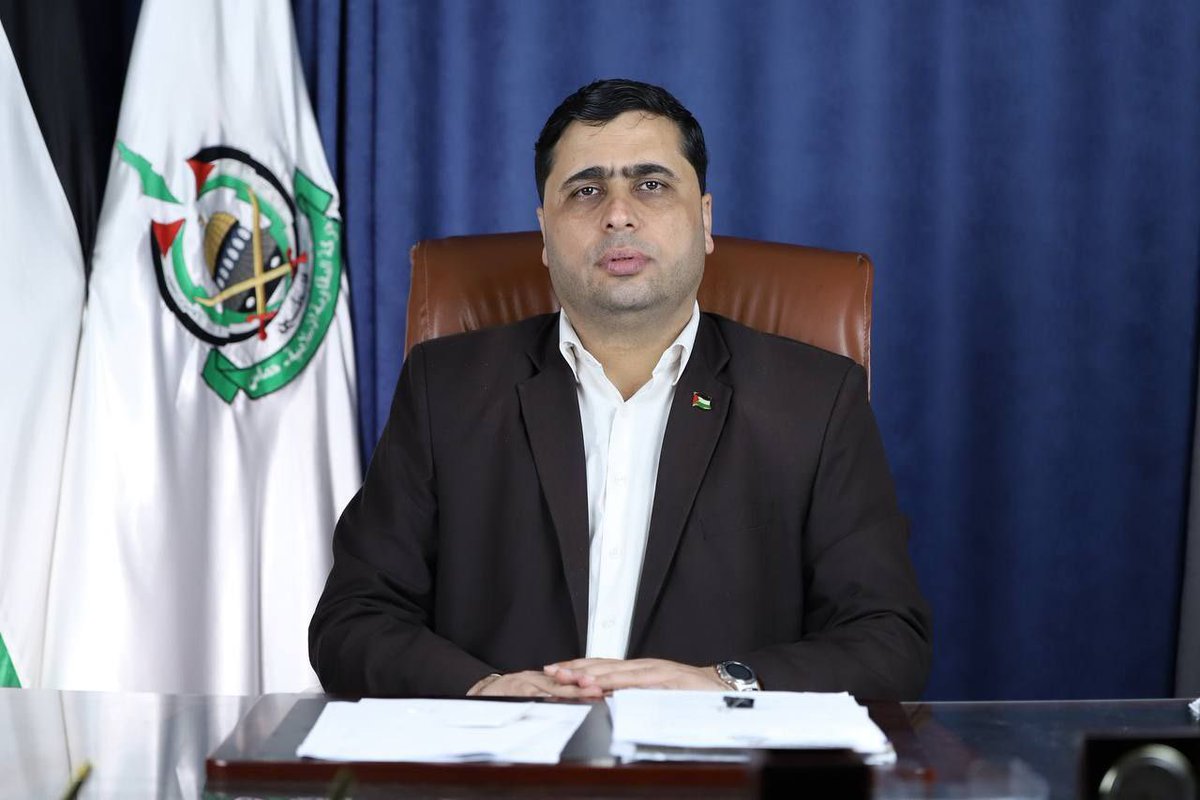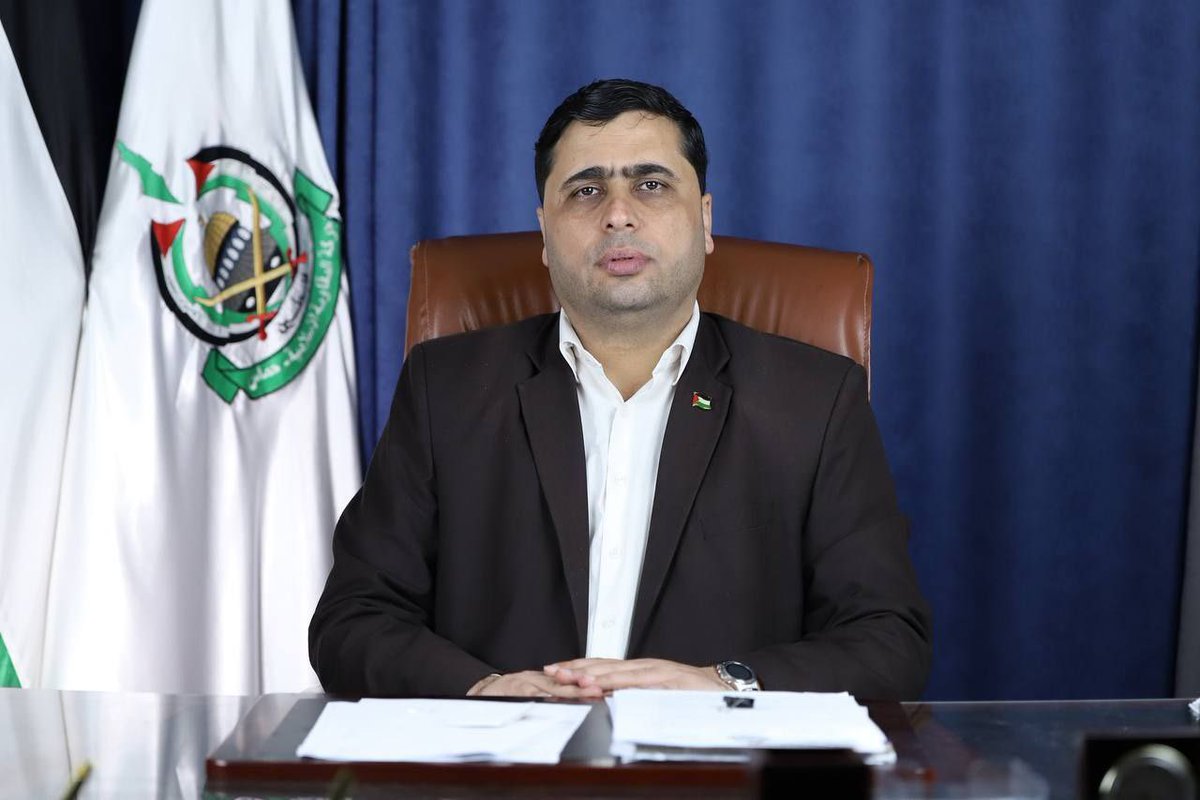BREAKING: Hamas Spokesperson Killed in Israeli Airstrike!
Breaking News: Hamas Spokesperson Killed in Israeli Airstrike
In a significant development in the ongoing conflict between Israel and Hamas, Abdul Latif Al-Qanou, the spokesperson for Hamas, has been killed in an Israeli airstrike. The targeted attack occurred in Jabalia, located in northern Gaza, and has heightened tensions in an already volatile region. This incident marks a critical moment in the protracted conflict, and understanding its implications requires a comprehensive look into the background, the event itself, and the potential fallout.
Who Was Abdul Latif Al-Qanou?
Abdul Latif Al-Qanou served as the spokesperson for Hamas, the militant group that governs the Gaza Strip. His role was pivotal in communicating the group’s narratives and responses to international media and audiences. Al-Qanou was known for his articulate speeches and staunch defense of Hamas’s positions, often framing the group’s actions within the context of resistance against Israeli occupation. His death is not just a loss for Hamas, but it also signals a significant blow to the group’s public relations efforts.
The Context of the Airstrike
The airstrike that killed Al-Qanou is part of a series of military operations conducted by Israel aimed at dismantling Hamas’s leadership and military capabilities. Israel has long maintained that such strikes are necessary for national security, particularly in response to rocket attacks and other forms of aggression originating from Gaza. The airstrike in Jabalia, a densely populated area, raises concerns about collateral damage and the safety of civilians in the region.
Reactions to the Killing
The killing of Abdul Latif Al-Qanou has elicited a range of reactions both locally and internationally. Supporters of Hamas mourn his death as a martyrdom, while Israeli officials may view the operation as a tactical success in their ongoing campaign against Hamas. The international community is likely to respond with calls for restraint, as such events often escalate violence and lead to further military confrontations.
- YOU MAY ALSO LIKE TO WATCH THIS TRENDING STORY ON YOUTUBE. Waverly Hills Hospital's Horror Story: The Most Haunted Room 502
Implications for the Israel-Hamas Conflict
The death of a high-profile figure like Al-Qanou could have several implications for the ongoing Israel-Hamas conflict. First, it may lead to a rallying effect among Hamas supporters, potentially increasing recruitment and support for the group as they seek to avenge his death. Conversely, it could also create internal divisions within Hamas, as leadership dynamics shift in response to this loss.
Moreover, this incident may lead to increased military operations by Israel, further destabilizing the region. The cycle of retaliation that often follows such killings can result in heightened violence, civilian casualties, and a deterioration of humanitarian conditions in Gaza. The international community will likely watch closely to assess how this event impacts the fragile ceasefire agreements that have occasionally been brokered between the two sides.
The Broader Impact on Regional Stability
The killing of Al-Qanou is not just a localized issue; it has broader implications for regional stability. The Israeli-Palestinian conflict has long been a flashpoint in Middle Eastern politics, influencing relationships between various countries and non-state actors in the region. Escalations in violence can lead to increased tensions among neighboring countries, potentially drawing them into the conflict.
Countries such as Egypt, Jordan, and Lebanon are particularly sensitive to developments in Gaza, as they host significant Palestinian populations and have a vested interest in maintaining stability. The reaction of these countries to the airstrike and its aftermath will be crucial in determining the future course of the conflict.
Conclusion: A Pivotal Moment in the Conflict
The killing of Abdul Latif Al-Qanou represents a pivotal moment in the ongoing Israel-Hamas conflict. As a key spokesperson for Hamas, his death may have far-reaching consequences for both the group and the broader geopolitical landscape of the region. The immediate aftermath of this event will likely see a surge in tensions, military operations, and international reactions as stakeholders navigate the complexities of this situation.
In summary, the airstrike that killed Al-Qanou is emblematic of the broader struggles within the Israel-Palestine conflict, highlighting the cycle of violence that continues to plague the region. As the world watches, the implications of this event will unfold, shaping the future of not only Hamas but also the prospects for peace and stability in the Middle East.

BREAKING:
Abdul Latif Al-Qanou, spokesperson for Hamas, has been killed in an Israeli airstrike that targeted his tent in Jabalia, northern Gaza. pic.twitter.com/lnV4kx175d
— Suppressed News. (@SuppressedNws) March 27, 2025
BREAKING:
In a significant development, Abdul Latif Al-Qanou, the spokesperson for Hamas, has been reported killed in an Israeli airstrike targeting his tent in Jabalia, northern Gaza. This incident marks a critical moment in the ongoing conflict between Israel and Hamas, drawing attention from around the globe. As tensions escalate in the region, the implications of this event could reverberate through both political and military landscapes.
Who Was Abdul Latif Al-Qanou?
Abdul Latif Al-Qanou was not just a spokesperson for Hamas; he was a prominent figure in the Palestinian political scene. His role involved articulating Hamas’s positions to the media and the public, often amidst an environment fraught with conflict and controversy. Al-Qanou’s statements frequently aimed to galvanize support for the Palestinian cause while also countering narratives from opposing factions. His death is likely to create a vacuum in Hamas’s communications, leading to questions about who will take on this pivotal role in the organization.
The Context of the Airstrike
The airstrike that led to Al-Qanou’s death occurred in Jabalia, a densely populated area in northern Gaza. This region has been a focal point in the ongoing conflict, with frequent exchanges of fire and military operations from both sides. Israeli airstrikes are often justified by the government as necessary measures to neutralize threats posed by Hamas and other militant groups. However, these actions frequently result in civilian casualties and widespread destruction, leading to international outcry and calls for restraint.
The Impact of Abdul Latif Al-Qanou’s Death
Al-Qanou’s death raises several important questions about the future of Hamas and the broader conflict. For one, it may escalate tensions between Israel and Hamas, potentially leading to retaliatory actions. Moreover, Al-Qanou was seen as a key communicator for Hamas’s strategies and narratives. His absence could hinder Hamas’s ability to effectively communicate with supporters and the international community, impacting their operational effectiveness.
Reactions from the International Community
The international community has reacted quickly to the news of Al-Qanou’s death. Various governments and organizations have expressed concern over the escalation of violence in Gaza and the potential for further conflict. Human rights advocates have also raised alarms about the implications of targeted killings, arguing that such actions can violate international law and escalate cycles of violence.
What’s Next for Hamas?
In the wake of Al-Qanou’s death, Hamas will likely face internal and external pressures. Internally, the organization must navigate leadership challenges and possibly appoint a new spokesperson. Externally, Hamas may need to reassess its strategies in light of the intensified Israeli military actions. The dynamics of power within the organization could shift, possibly leading to changes in their approach to both military engagement and diplomatic efforts.
The Broader Conflict: Israel and Hamas
The ongoing conflict between Israel and Hamas is deeply rooted in historical grievances, territorial disputes, and national identity. The death of a high-profile figure like Al-Qanou can serve as a flashpoint, igniting further violence and complicating peace efforts. With each airstrike and retaliatory attack, the cycle of violence tends to perpetuate itself, making resolution increasingly elusive.
Media Coverage and Public Perception
Media coverage of events like Al-Qanou’s death plays a crucial role in shaping public perception. News outlets often highlight the humanitarian impact of military actions, focusing on civilian casualties and the destruction of infrastructure. However, narratives can be polarized, with different outlets framing the events in ways that align with their editorial viewpoints. This can skew public understanding of the conflict and complicate efforts for dialogue and peace.
The Role of Social Media
In today’s digital age, social media has become a powerful tool for disseminating information and mobilizing support. The announcement of Al-Qanou’s death quickly spread across platforms like Twitter, sparking discussions and debates among users worldwide. This rapid sharing of news can sometimes lead to misinformation, but it also amplifies voices from the ground, giving a platform to those directly affected by the conflict. For instance, the tweet from Suppressed News highlighted the gravity of the situation, stressing the need for immediate awareness and action.
The Human Cost of Conflict
At the heart of the ongoing conflict is the human cost. Each airstrike and military operation impacts the lives of countless civilians, often resulting in loss of life, injury, and displacement. Al-Qanou’s death, while significant politically, is also a stark reminder of the personal tragedies that unfold in war. Families are torn apart, communities are shattered, and the dream of a peaceful resolution seems ever more distant.
Future Peace Efforts
Looking ahead, the international community must grapple with the complexities of the Israeli-Palestinian conflict. Peace efforts have long been stalled, and the death of significant figures like Al-Qanou can either hinder or catalyze discussions toward a resolution. Stakeholders must consider new strategies that address the roots of the conflict, focusing on dialogue and reconciliation rather than military solutions.
Conclusion: A Call for Understanding
The death of Abdul Latif Al-Qanou in an Israeli airstrike is not just a political event; it is a human tragedy that underscores the urgent need for a comprehensive understanding of the Israeli-Palestinian conflict. As we reflect on this incident, it is essential to keep in mind the broader implications for peace, security, and human rights in the region. The path forward is fraught with challenges, but with concerted efforts and a commitment to understanding the complexities involved, there is hope for a more peaceful future.

